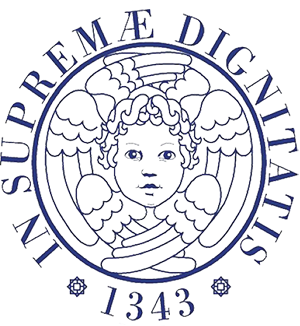Definition:
The ureter, like any other organ, may be subject to numerous malformations, that is, congenital anomalies of normal anatomy and function.
Anomalies can be of number, location and course, or structure.
Retrocaval ureter, in particular, is a malformation affecting the right ureter, which is found, due to an abnormality of development, behind a large vein, the inferior hollow vein, which develops in front of it by squashing it against the spine. Although the lesion is congenital, most patients ignore their condition until their third or fourth decade of life. Patients report right lumbar pain that is usually described as dull and intermittent, but which may resemble a kidney colic and may have recurrent urinary tract infections caused by impediment to urinate outflow.
Indications:
Some malformations do not involve symptoms for the patient and do not require any therapy; others, however, cause a condition for a disease and may be responsible for severe kidney damage. Ureteral anomalies usually cause symptoms and damage to kidney function when they result in urinary tract obstruction, which may result in infection, cholecystitis and kidney function deficits. In these cases, on a case-by-case basis, the most appropriate intervention is recommended to resolve the disease state and to restore, where possible, anatomical and functional conditions as close to normal as possible. Even the retrocaval ureter may not be responsible for a disease state and require no treatment. In other cases, ureteral squashed by the hollow vein may be such as to cause dilatation of the kidney cavities (hydronephrosis) and infection.
The residual kidney function and the functional and anatomical obstacle assessment of urine passage are evaluated with appropriate examinations that, in some cases, may require invasive maneuvers (ureteric catheterization, percutaneous nephrostomy and others) and be performed with a short sedation. The most appropriate treatment will be proposed in relation to the results of the performed examinations.
Technical Description:
If the kidney has lost its function and is no longer recoverable, the only action that can be taken is removal of the damaged kidney (nephrectomy: see specific leaflet). In all other cases, interventions, mostly surgical but sometimes endoscopic, will be proposed, aimed at preventing and / or resolving possible complications of ureteral malformation. In the case of retrocaval ureter, the surgery consists in cutting the ureter and pulling the two extremities at the front of the hollow vein (which obstructed it by squashing it). The portion of the ureter that has now been altered by prolonged compression by the hollow vein will be removed or, when not removable, will be placed in front of the vein. Frequent use of urinary derivation, internal (double J) or percutaneous (percutaneous nephrostomy), is recommended prior to treatment to allow for the maintenance of renal function and to allow for faster resolution of the infection. The ureteral or nephrostomic tutor can also be positioned during surgery or endoscopic surgery and be maintained for prolonged periods after the surgery.
Preparation for intervention:
This is a standard preparation with trichotomy, antibiotic prophylaxis, evacuating enema and fasting from the previous midnight.
Duration of intervention:
Demolition and reconstructive interventions have a variable duration.
Type and duration of hospitalization:
It works in an ordinary hospitalization (inpatient) and the stay varies from 7 to 15 days.
Results:
Are similar to those of demolition and reconstructive surgery (see specific leaflets).
Advantages:
The advantage of surgical or endoscopic surgery for ureter anomalies is to preserve renal function and to avoid and remedy all the complications resulting from an urinary tract obstruction (recurrent infections, cholecystitis, loss of renal function). Even removing a non-functioning kidney often translates into an advantage as it prevents potentially very dangerous health complications (kidney abscess, septicemia, and more).
Disadvantages:
It may be necessary to expose to radiations for a relatively long period of time, to correctly visualize the ureter anomaly and allow the most appropriate therapy to be adopted.
Side effects:
no one in particular.
Complications:
The complications are those inherent in the proposed surgery or endoscopy (see specific leaflet). The most frequent, but still very rare, are infections, loss of urine through the surgical wound (fistula, often only temporary), intraoperative bleeding and need for blood transfusion (autotransfusion may be used, that is the preoperative withdrawn and then the transfusion of the same blood).
As already mentioned, a ureteral tutor can be left in place for some time and may then require a short sedation to remove it.
The pre-existing kidney function deficits may persist or may be aggravated by the failure of the obstacle correction to the urinary flow or to the overlapping of a new complication. Haemorrhage or an infectious complication may result in recurrence of the ureteral stenosis. As far as this is rarely done, the incidence of intraoperative or postoperative complications is directly proportional to the complexity of the surgical procedure required.
At discharge:
Precautions are related to the type of procedure used.
How to behave in case of complications arising after discharge:
It is necessary to refer to the information leaflet concerning the type of procedure performed.
Checks:
it is useful to run a blood test and urine after 7-10 days and a renal ultrasound if side pain will manifest, fever, hematuria or other symptoms correlated with the intervention. In such cases, you should contact your health care professional immediately or in its absence the hospital.

